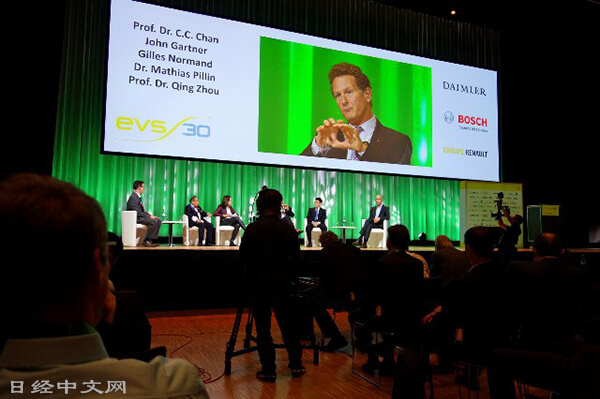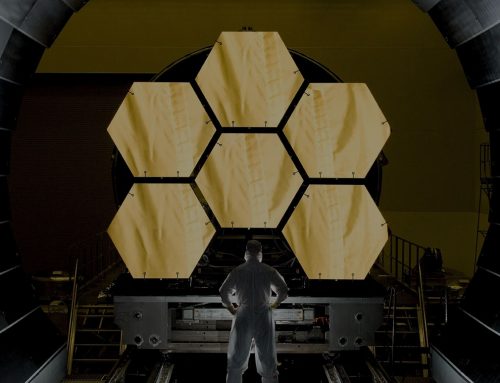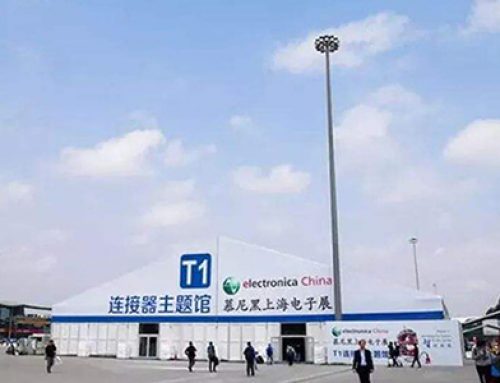The world's major auto companies are accelerating the transition to pure electric vehicles (EVs). Although there are also many voices questioning whether it will really achieve transformation, in the autumn of 2017, at the World Electric Vehicle Conference and Exhibition “EVS30” held in Stuttgart, Germany, the relevant companies such as car companies that are actively promoting their positions to pure electric vehicles will The conditions for popularization were discussed. "We have to reinvent the car," said local car manufacturer Daimler's director Ola Karenniou, who will introduce electric models for all models, including trucks, buses and vans, in addition to passenger cars. Cars equipped with engines go back to the era of founders such as Gottlieb Daimler and Carl Benz. The company that owns high-end car brands such as Mercedes-Benz has "re-invented" as a key word.

The 30th World Electric Vehicle Conference & Exhibition "EVS30" (Stuttgart, Germany, October 2017)
Karenniu said that "the biggest issue is the battery", although the price of lithium batteries continues to decline, but by 2022, the rate of decline will slow down. In addition, he said that all-solid batteries and lithium-sulfur batteries, known as "post-lithium ions" in 2025-2030, will be mass-produced, and these new batteries will become "game changers". According to Jill Norman, Senior Vice President of Renault, France, “The cost of electric small cars will be lower than that of gasoline vehicles by 2020”, and in addition to the company’s top share in Europe, it plans to increase the market share of electric vehicles in China. There are problems with depletion of resources and rising prices of battery materials such as cobalt and lithium, which are repeatedly advocated by electric vehicle skepticism. Colin McLacher, an analyst at the investigation company Bloomberg New Energy Finance (BNEF), denied these effects. With 2030% of pure electric vehicles in the global new car sales in 2030, lithium needs to reach about three times the global production in 2016, and cobalt needs to reach 1.3 times global production in 2016. However, it is said that despite this, it is only 0.74% and 2.23% of the proven reserves. Regarding the price, even if the price of cobalt reaches 3 times, the price of the battery will only increase by 13%, the price of lithium will increase by 3 times, and the price of the battery will only increase by 2%. But McLacher believes that the price increase can be offset by expanding the production scale of the battery.
Another worry factor is often mentioned, that is, the tight supply of electricity. In this regard, in Germany, for example, even if the retention rate of pure electric vehicles reaches 40%, it is less than one tenth of the electricity demand. In addition, McLacher also pointed out that with the decentralization of power supply and energy-saving, the total power demand will be less than now. With regard to the relatively concentrated period of demand increase, the United States and other countries have begun to target flexible electric vehicles and flexibly price them according to time periods. McLacher pointed out that "it should be concerned with the policy changes of the European Union (EU), the United States and China." From the perspective of probability and impact, policy changes may become the biggest risk. What inspired the propaganda group and felt uneasy was the speech of Zhou Qing, a professor at Tsinghua University in China. Professor Zhou Qing cited the construction of the high-speed rail network, emphasizing that if the Chinese government wants to cultivate a pure electric vehicle industry, it will build a relevant market. Although there will be some problems, the government does not mind. For global automakers, the Chinese market cannot be ignored. Professor Zhou Qing said that 10% of the Chinese auto market is equivalent to the sum of the German and French markets. Although it is necessary to pay attention to policy trends in the future, the pace of shifting to pure electric vehicles will be tangible. What kind of views will emerge in the future and need to be closely watched.



